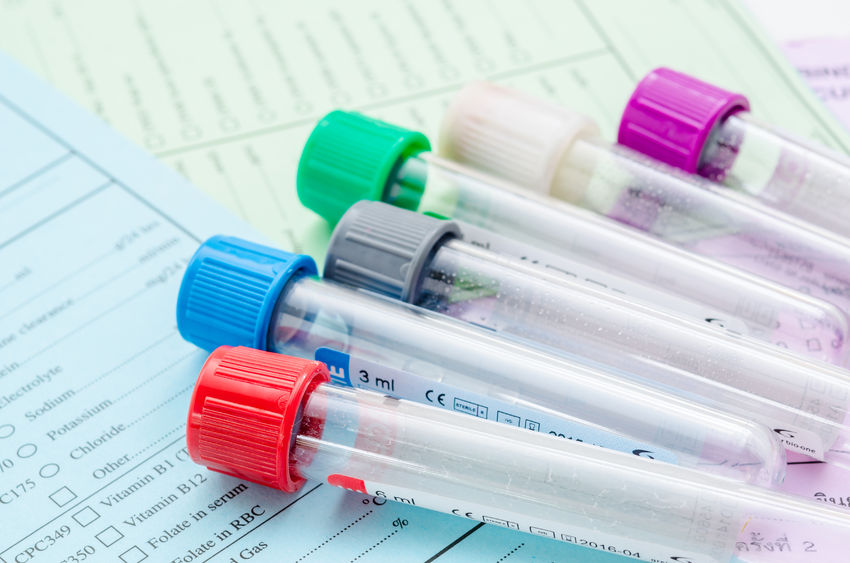
LH
Also known as Luteinising Hormone BloodWhat is this test?
The Luteinising Hormone (LH) test measures the amount of luteinising hormone in the blood. This hormone plays an important role in maintaining a healthy reproductive system in both men and women. It is produced in the anterior pituitary gland. It affects the sex organs in both men and women during sexual development.
Importance of LH:
In women, LH works with the follicle stimulating hormone (FSH) to stimulate the production of estrogen, the female sex hormone. Estrogen further increases the levels of LH, which in turn, stimulates the ovary to release a mature egg. If the egg is fertilized, LH stimulates the production of progesterone, a hormone necessary to maintain pregnancy. If fertilization does not occur, the levels of progesterone drop off, which ultimately leads to the beginning of the next menstrual cycle. Thus, LH plays an important role in menstruation, ovulation, and puberty.
In men, LH stimulates the production of testosterone which is necessary for the production of sperms. Thus, LH plays a major role in puberty and fertility in men.
Why this test is performed?
This test is performed to assess the functions of the reproductive organs, fertility issues, ovulation process, and the function of the pituitary gland or hypothalamus. In women, your doctor may ask you to perform this test if you have irregular or heavy menstrual periods, difficulty getting pregnant or fertility issues, and to track ovulation during the menstrual cycle, or if you suspect menopause.
In men, your doctor may ask you to perform this test if you have a low sperm count, fertility issues, or signs of low testosterone levels such as a decreased sex drive, low muscle mass, etc.
You may also be advised to undergo this test if you experience any symptoms of pituitary disorders. If the doctor suspects early or delayed onset of puberty, this test may be advised. It may also be performed as part of a test panel where hormones such as LH, progesterone, estrogen, testosterone, FSH, etc. are tested.
Precautions:
Medications such as clomiphene, digoxin, naloxone, birth control pills, anticonvulsants, some hormone treatments, etc. may alter the results of this test. Hence, it is advised that you report all your medications to the doctor before undergoing this test.
Also known as LH test, Luteinising Hormone.
Test Preparation
Inform your doctor if you are on any medications, have any allergies or underlying medical conditions before your LH. Your doctor will give specific instructions depending on your condition on how to prepare for LH.
No specific preparation is required for this test. Your doctor may ask you to stop taking certain medications such as birth control pills or other hormone pills for up to four weeks before the test. You are also advised to inform the doctor if you have had any test with a radioactive substance in the past 7 days. If this test is being performed with any other tests, you may need to fast (not eat or drink) for up to eight hours leading up to the test; your doctor will provide specific instructions in this case.
Understanding your test results
If the test result falls within the normal reference range, you have an adequate level of LH and no medical intervention is necessary.
In women, increased levels of LH may indicate a condition called primary ovarian failure, where the ovaries fail to work properly. Many conditions such as autoimmune disorders, ovarian tumors, Turner syndrome (a genetic abnormality), polycystic ovary syndrome, adrenal diseases, thyroid diseases, etc. may lead to primary ovarian failure. Women with underdeveloped ovaries and women undergoing chemotherapy or radiation therapy may also exhibit increased LH levels. Decreased levels of LH may indicate secondary ovarian failure. This condition may be caused by disorders of the pituitary gland or hypothalamus.
In men, the increased levels of LH indicate primary testicular failure, a condition where the testes are unable to work properly. Many conditions such as autoimmune disorders, germ cell tumors (a type of cancer), Klinefelter syndrome (a genetic abnormality), some viral infections such as mumps, etc. may lead to primary testicular failure. Men with underdeveloped testes and men undergoing chemotherapy or radiation therapy may also exhibit increased levels of LH. Decreased levels of LH may indicate secondary testicular failure. This condition may be caused by disorders of the pituitary gland or hypothalamus. Testicular failure may lead to symptoms such as a decreased sexual drive, tiredness, sexual dysfunction, low muscle mass, etc.
This test is useful to understand if the symptoms have been caused by a disorder of the pituitary gland or the hypothalamus. After measuring the baseline LH levels, a dose of gonadotropin is injected into the individuals. An increase in LH levels indicates a hypothalamus disorder while a decrease in LH levels indicates a pituitary disorder.
In children, increased levels of LH may indicate early onset of puberty. In delayed puberty, the LH levels may be normal or lower than normal. Many genetic conditions, some type of cancers, chronic infections, some types of traumas, etc. may result in abnormal LH levels.
If you have higher or lower than normal levels of the LH hormone, consult your doctor for further instructions. Based on the test results, your doctor may advise appropriate medical treatments, lifestyle modifications, or further diagnostic tests.
| Gender | Age groups | Value |
| FEMALE | All age groups | 2 - 18 mIU/ml |